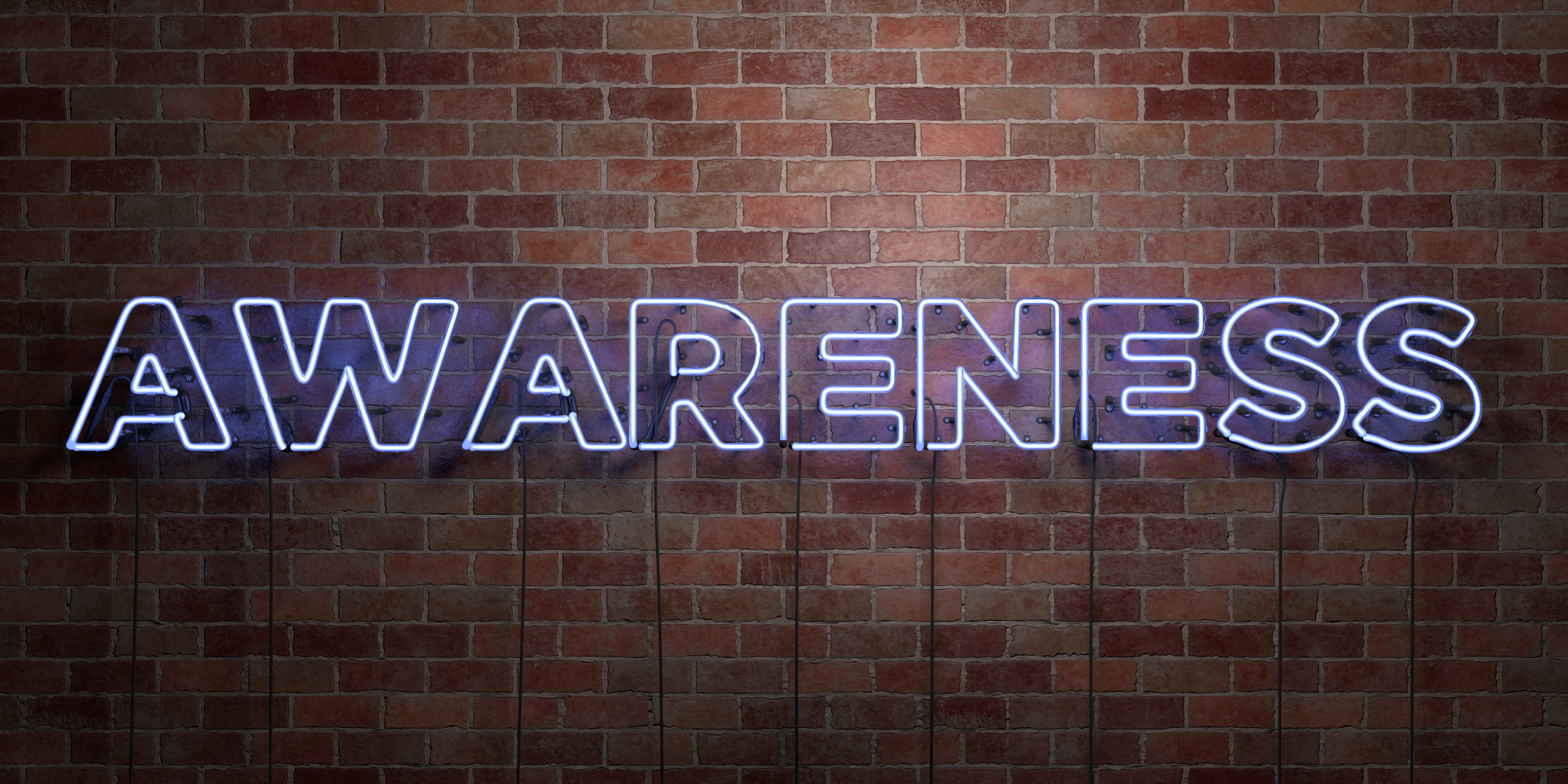Since it is Facial Pain Awareness Month, it seems especially appropriate to discuss the merits of raising awareness in the first place. You may ask:
- What difference does it make, really?
- Does it matter if our friends on Facebook see that we have facial pain conditions?
- Is it really necessary to turn our social media accounts 14 shades of teal in October?
- How does it help to make people who have no connection to facial pain aware that it is a “thing”?
If you spend much time thinking about it, you might come away discouraged and feeling as though we’re just spinning our wheels and getting nowhere with this “awareness stuff.” But…you’d be wrong.
DiagnosIs and Earlier Intervention
Quite often, a person’s initiation into facial pain is abrupt and unexpected. The subsequent path from onset to diagnosis and treatment can be a long and windy one. The distance from Point A to Point B is heavily dependent upon awareness.
 If you and your circle of family and friends have never heard of facial pain as a medical condition, your first stop is not likely to be a neurologist. Many patients report multiple trips to a wide variety of specialists, including dentists, otolaryngologists, TMJ specialists, and more. That process takes time and is extremely discouraging to a patient with severe and unexplained pain. Much of that wasted time could be mitigated by you or someone you know being aware of facial pain. When a family member says, “Hey, I have a Facebook friend who has something like this. Maybe it’s what she has!” your journey to a diagnosis and treatment is shortened.
If you and your circle of family and friends have never heard of facial pain as a medical condition, your first stop is not likely to be a neurologist. Many patients report multiple trips to a wide variety of specialists, including dentists, otolaryngologists, TMJ specialists, and more. That process takes time and is extremely discouraging to a patient with severe and unexplained pain. Much of that wasted time could be mitigated by you or someone you know being aware of facial pain. When a family member says, “Hey, I have a Facebook friend who has something like this. Maybe it’s what she has!” your journey to a diagnosis and treatment is shortened.
Lack of awareness within the medical community presents its own challenges.
 Unless your doctor is fully aware of the various facial pain conditions, you may have difficulty getting a proper diagnosis.
Unless your doctor is fully aware of the various facial pain conditions, you may have difficulty getting a proper diagnosis.
Once you have a diagnosis, lack of awareness can present a challenge to proper treatment. If your physician is unaware that there are many treatment options and that new ones are being developed all the time, you could be denied access to the very thing that could relieve your pain.
Beyond doctors, some nurses and other medical staff have never heard of facial pain conditions and they may not fully grasp the extreme nature of your pain. Emergency department doctors and staff are notorious for not being willing to treat severe pain with strong (and appropriate) medications, sometimes denying a patient adequate care due to suspicion of “pill seeking.”
The good news is, the medical community is made of up people, like you and me, who live in society and are influenced by awareness raising activities. It is our great hope that more people will gain access to appropriate and adequate treatment as public awareness is raised.
Our mission at the Facial Pain Advocacy Alliance is to bring facial pain out of obscurity, and into the light.

